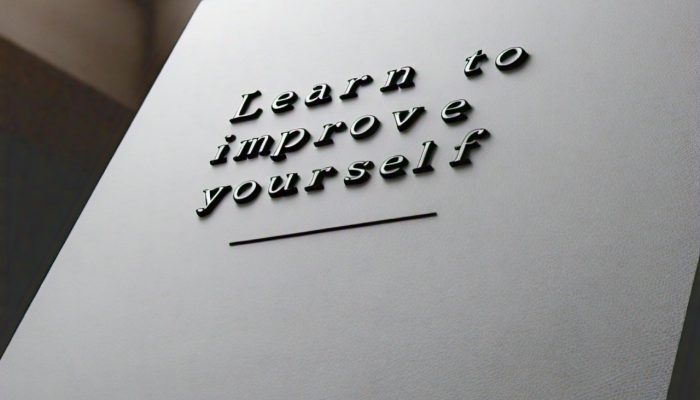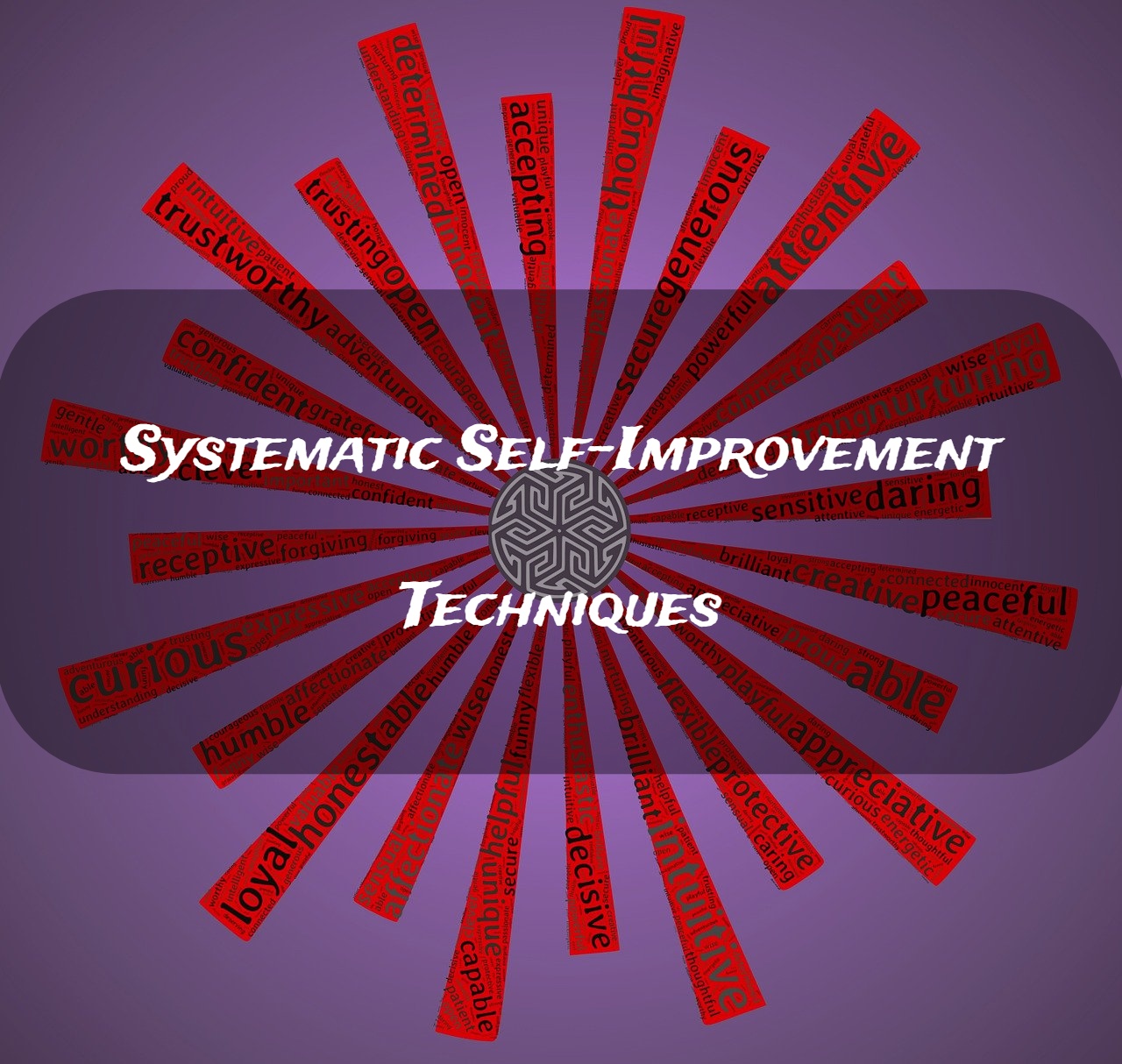What are Systematic Self Improvement Techniques?
Embarking on a journey of self-improvement is like embarking on a thrilling adventure. It’s a journey where you get to uncover your true potential, overcome obstacles, and emerge as a stronger, more capable version of yourself. And at the heart of this transformative journey lies systematic self-improvement.
Imagine having a roadmap that leads you towards your goals, a blueprint for personal growth and success. That’s what systematic self-improvement is all about. It’s not just about making random changes here and there; it’s about implementing a well-thought-out plan that propels you towards your dreams.
Picture this: You identify an area of your life you want to improve, whether it’s your career, relationships, health, or personal development. You set specific, measurable goals and create a step-by-step plan to achieve them. You track your progress, celebrate your successes, and learn from your setbacks. That, in a nutshell, is systematic self-improvement.
But why is it so important? In today’s fast-paced world, where distractions abound and time is precious, having a systematic approach to self-improvement is crucial. It helps you stay focused, motivated, and on track towards your goals. It enables you to make the most of your time and resources, ensuring that every step you take brings you closer to your ultimate destination.
Related Article: Personal Development Examples in Real-Life
Moreover, systematic self-improvement is not just about achieving external success; it’s also about inner growth. It’s about becoming more self-aware, more resilient, and more confident. It’s about unlocking your full potential and living the life you’ve always imagined.
So, if you’re ready to embark on this exhilarating journey of self-discovery and transformation, join us as we delve into the world of systematic self-improvement techniques. Together, we’ll explore the tools, strategies, and mindset shifts that will help you unleash your greatness and live your best life.

7 Techniques to Improve Yourself Systematically
Setting Clear Goals:
In the pursuit of self-improvement, setting clear and well-defined goals is paramount. This is where the concept of SMART goals comes into play. SMART stands for Specific, Measurable, Achievable, Relevant, and Time-bound, and it serves as a guideline for creating goals that are not only compelling but also attainable.
Specific goals provide clarity and direction. They answer the “what,” “why,” and “how” of your objective. For instance, instead of setting a vague goal like “improve my fitness,” a specific goal would be “run a 5k race in under 30 minutes.”
Measurable goals allow you to track your progress and stay motivated. By quantifying your goals, you can easily determine if you’re on track or if adjustments need to be made. For example, if your goal is to read more books, a measurable target could be “read one book per month.”
Achievable goals are realistic and within reach. While it’s important to challenge yourself, setting unrealistic goals can lead to frustration and demotivation. It’s better to set smaller, achievable goals that build momentum towards larger objectives.
Relevant goals align with your overall objectives and values. They should be meaningful and contribute to your long-term vision for personal growth. For instance, if your goal is to advance in your career, relevant goals could include acquiring new skills or completing a certification.
Time-bound goals have a clear deadline. This adds a sense of urgency and helps prevent procrastination. For example, instead of saying “I want to learn a new language,” you could say “I want to reach conversational fluency in Spanish within six months.”
Creating a Plan:
Creating a detailed plan is essential for achieving your goals. To start, clearly define what you want to achieve using the SMART criteria (specific, measurable, achievable, relevant, and time-bound). Once you have your goal in mind, break it down into smaller, manageable steps. Assign a deadline to each step to create a sense of urgency and keep yourself on track.
Next, consider what resources you’ll need to achieve your goal and how you’ll acquire them. This could include time, money, skills, or support from others. Anticipate potential challenges that may arise along the way and develop a plan to overcome them.
Create a timeline for completing each step of your plan. Be realistic about what you can achieve, but also challenge yourself to stay motivated. Regularly review your progress and adjust your plan as needed. Celebrate small victories to stay motivated and focused on your ultimate goal.
Building Positive Habits:
Habits play a significant role in self-improvement, as they shape our daily actions and ultimately, our outcomes. Cultivating positive habits that align with your goals is essential for long-term success.
To begin, identify the habits that are currently hindering your progress and replace them with positive ones. Start small and gradually increase the complexity of your habits. Consistency is key; make your new habits a part of your daily routine.
Another effective strategy is to use cues and rewards to reinforce your new habits. For example, if your goal is to exercise more, lay out your workout clothes the night before as a cue, and reward yourself with a healthy snack after each workout.
It’s also important to track your progress to stay motivated. Use a habit tracker or journal to record your daily habits and reflect on your achievements regularly.
Time Management:
Effective time management is essential for making consistent progress towards your goals. Here are some strategies to help you manage your time more effectively:
Related Article: Ideal Qualities of Time Management Goals
- Define your short-term and long-term goals clearly. Having a clear understanding of what you want to achieve will help you prioritize your tasks and stay focused.
- Use techniques like the Eisenhower Matrix to categorize tasks based on their urgency and importance. Focus on completing high-priority tasks first.
- Use a planner or digital calendar to organize your tasks and schedule your day. This will help you allocate time for each task and avoid overloading your schedule.
- Break down large tasks into smaller, more manageable steps. This will make it easier to tackle them and keep you motivated as you make progress.
- Set realistic deadlines for your tasks. This will create a sense of urgency and help you stay on track towards achieving your goals.
- Identify your biggest distractions and find ways to minimize them. This could mean turning off notifications, setting specific times for checking emails, or working in a quiet space.
- Learn to say no to tasks that are not aligned with your goals or priorities. This will help you avoid overcommitting and focus on what truly matters.
- Regularly review your progress and adjust your schedule if needed. This will help you stay flexible and adapt to changes in your priorities or circumstances.
By implementing these strategies, you can improve your time management skills and make consistent progress towards achieving your goals.
Related Article: How to Manage Time Better
Continuous Learning:
Lifelong learning is essential for personal and professional development. It helps us adapt to change, stay relevant in our fields, and broaden our perspectives. Incorporating learning into your self-improvement journey can lead to a more fulfilling and successful life.
One way to incorporate learning into your self-improvement journey is to set aside dedicated time for learning. This could be daily, weekly, or monthly, depending on your schedule. Use this time to read books, take online courses, or attend seminars related to your interests or goals.
Another way to incorporate learning is to seek out new experiences. Traveling, trying new hobbies, or volunteering can expose you to new ideas and perspectives, fostering personal growth.

Networking is also a valuable learning tool. Engaging with people in your field or with similar interests can expose you to new ideas and opportunities for learning.
Finally, reflect on your experiences and learning regularly. This can help you identify areas for improvement and set new learning goals.
By making learning a lifelong habit, you can continue to grow and develop throughout your life, leading to a more fulfilling and successful life.
Seek Feedback and Adjust:
Feedback plays a crucial role in self-improvement by providing valuable insights into our strengths and areas for development. It offers an external perspective that can help us see things we might have missed and guide us towards more effective strategies.
To effectively use feedback for self-improvement, it’s essential to seek feedback from diverse sources. This includes peers, mentors, supervisors, and even friends or family members who can provide different perspectives. Be open to constructive criticism and use it as an opportunity to learn and grow.
Once you receive feedback, take the time to reflect on it. Identify patterns or recurring themes in the feedback and use this information to adjust your approach. For example, if multiple people mention that you could improve your communication skills, you might consider taking a course or workshop to enhance this skill.
It’s also important to be proactive in seeking feedback. Don’t wait for feedback to come to you; actively seek it out from those around you. This shows that you are committed to self-improvement and value the input of others.
Track Progress:
Tracking your progress is crucial for achieving your goals as it provides valuable feedback on what’s working well and what may need adjustment. Firstly, tracking progress boosts motivation by showing even small advancements. Secondly, it helps identify patterns in behavior or approach, aiding in informed decision-making. Thirdly, tracking holds you accountable, ensuring commitment to your goals. Lastly, it allows for celebrating achievements, reinforcing positive habits.
To track progress effectively, consider using goal setting apps like Trello or Google Keep, which break down goals into smaller tasks. Journaling can also help reflect on progress and stay motivated. Visual representations such as charts or graphs make progress tangible. Additionally, accountability partners or regular check-ins can provide support and keep you on track.
Final Thoughts:
Embarking on a journey of systematic self-improvement is not just about achieving goals; it’s about transforming your life. It’s about taking control of your destiny, pushing past limitations, and unlocking your full potential. By setting clear goals, creating a plan, and consistently working towards them, you can make significant strides in your personal and professional life.
Remember, self-improvement is not a one-time event but a lifelong process. It requires dedication, perseverance, and a willingness to adapt. Embrace challenges as opportunities for growth, and see setbacks as learning experiences. By continuously seeking to better yourself, you can lead a more fulfilling and purposeful life.
So, start today. Take that first step towards becoming the best version of yourself. Set your goals, create your plan, and commit to making positive changes in your life. Your future self will thank you for it.

